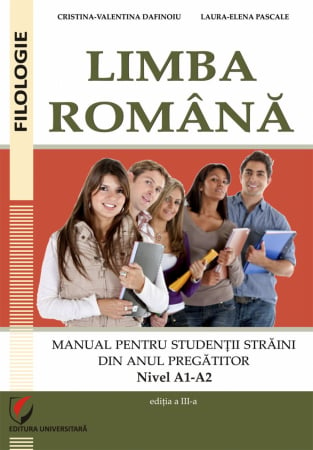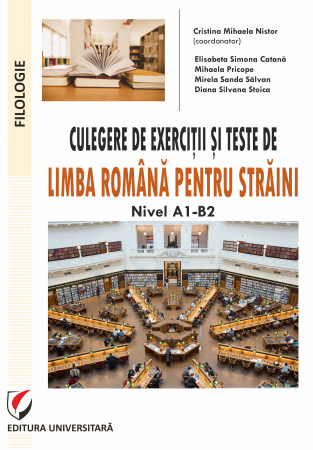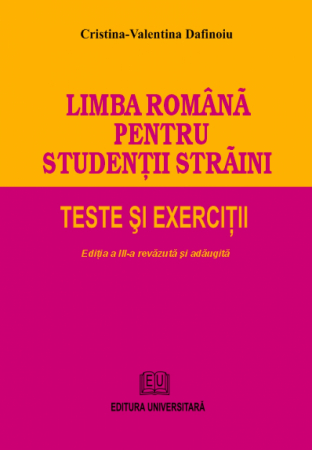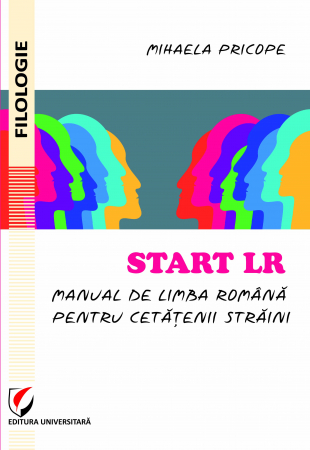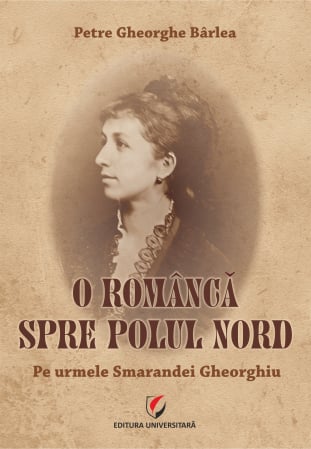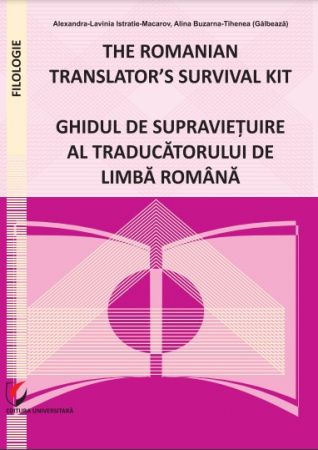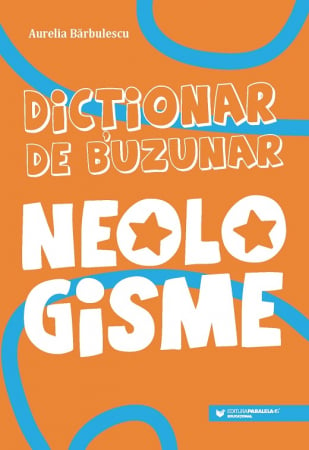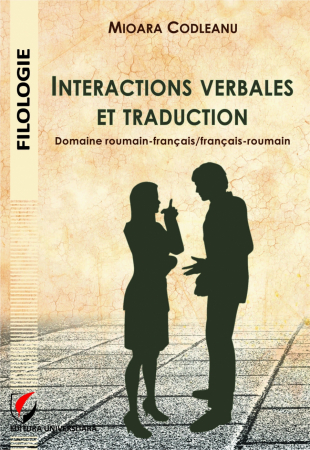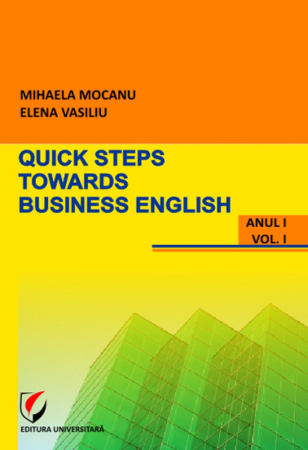Manuscript proposals: [email protected] / 0745 204 115 //// Tracking orders Individuals / Sales: 0745 200 357 / Orders Legal entities: 0721 722 783
Volume awarded with the FIRST PRIZE within the Manuscript Contest FULFILL A DREAM - SCIENTIFIC BOOK section
ISBN: 978-606-28-1318-5
DOI: 10.5682/9786062813185
Publisher year: 2021
Edition: I
Pages: 344
Publisher: Editura Universitară
Author: Mihaela-Emilia Vladu
Product Code:
9786062813185
Do you need help?
0745 200 357
- Description
- Download (1)
- Authors
- Content
- More details
- Reviews (0)
By choosing this theme, we set out to present the life and cultural activity of Ioan Bianu, a prestigious and complex personality who left his mark on the Romanian cultural and intellectual life, the initiator of a new horizon in the field of librarianship, university professor, researcher and academician. , who through hard work, selflessness and devotion managed to raise some of the Romanian cultural values of his time at European level.
The course of this paper aims to present the main stages that Bianu went through throughout his career in the cultural field, developed in a period of historical clarifications, crowded as if during the life of the academician: Union of Principalities (1859), proclamation of the Kingdom of Romania 1881), the War of Integration (1916-1918) and the Great Union of 1918.
Our paper aims to analyze, in concrete terms, the Old Romanian Bibliography (1508-1830), the most important work, unique in its kind at the time of publication, of the distinguished linguist and professor, director of the Library of the Romanian Academy, rightly considered the founder and the organizer, on a scientific basis, of the library of this institution.
The novelty of our research consists in the personal vision in which we interpreted the most important work of Ioan Bianu, grouping in each century the bibliographic files of the books recorded chronologically according to several criteria: printing center, language in which they were printed, the theme of the volumes ( cult books, school instruction books, treatises on history, medicine, grammar, author's books, books with philosophical and scientific content, translated foreign books), calendars, mines, fiction, brochures, deeds, home education books), common elements of ornamentation and graphics (frames, heraldic elements, engravings, coats of arms, initials and so on). Through this group we followed the evolution of the development of printing, of the diversification of the thematic content of books, of graphic illustration, of the presence in the Bibliography of prefects and predoslovii - in extenso or fragmentary - which illustrates, in turn, the progressive replacement of Slavonic with Romanian. and later the evolution of the Romanian language towards the literary language, therefore the evolution of the Romanian culture illustrated throughout the four centuries.
From a methodological point of view, we approached this topic from two perspectives, appealing to the historical monographic method and to the applicative-comparative method.
In order to make the first two chapters, we resorted to the historical monographic method, synthetically presenting aspects from the life and activity of academician Ioan Bianu and the way in which he was involved in the organization and establishment of the Romanian bibliographic school.
Chapter three has the character of a comparative applicative work, by grouped study of the files of the old book that compose the corpus of the old Romanian Bibliography.
The thesis is structured on four main chapters with the titles: Ioan Bianu and the Library of the Romanian Academy, Ioan Bianu and the evolutionary approach of the Romanian bibliography, Ioan Bianu's bibliographic conception in the elaboration of the old Romanian Bibliography. The old Romanian book (1508-1817) and Ioan Bianu and the echoes of the old Romanian Bibliography in the cultural context of the time.
We approached the biographical aspects regarding Ioan Bianu in the first chapter, entitled Ioan Bianu and the Library of the Romanian Academy, organized on several subchapters that include: biographical landmarks, university life in Bucharest, studies abroad (university centers in Milan and Paris), as well as his activity at the management of the Library of the Romanian Academy.
For the second stage of his life, the one after settling in Bucharest, I had in mind the following moments: student period, occupying the position of "library archivist" of the Romanian Academy, studies abroad, professional promotion after returning to the country , the activities carried out and the functions held in different institutional structures.
Hiring as an employee of these institutions opened new horizons for the academician in the professional hierarchy, thus becoming the first director of the Library of the Romanian Academy, corresponding member and holder of the Romanian Academy, being part of numerous academic commissions, administrative director, secretary of the Literary Section, general secretary and president of the Academy, then vice-president of the academic forum until the end of his life.
Our presentation aims, for this stage, both the activity carried out in the scientific field, and in the field of education, in which Ioan Bianu distinguished himself as a linguist and teacher of Romanian language and literature at the High School "St. Sava ”and, later, professor at the University of Bucharest.
Chapter two, entitled Ioan Bianu and the evolutionary approach of the Romanian bibliography, highlights punctually the contribution of Ioan Bianu to the evolution of the Romanian bibliography, including the stage of elaboration of the Bibliography plan, The appeal and the role of the collaborators at the constitution of the old book fund of the Romanian Academy, and then at the elaboration of the actual work.
Oriented according to norms conceived by foreign specialists in the field of European bibliography, the authors conceive in the original way the Bibliography plan from 1895, Ioan Bianu sharing the Romanian bibliography in three categories of books: the old Romanian book (1507-1830), the modern Romanian book 1831 until today) and the foreign book on the Romans. The first concretization of this bibliographic plan was the elaboration and publication of the Old Romanian Bibliography (1508-1830) made between 1903-1912, in collaboration with Nerva Hodos, assistant librarian (volumes I-II and issues 1-2 of volume III ), completed by Dan Simonescu, who will publish fascicles 3-8 from volume III, published in 1936 after the death of Ioan Bianu.
In the third chapter, entitled Ioan Bianu's Bibliographic Concept in the elaboration of the old Romanian Bibliography. The old book (1508-1817), we set out to establish the place that Ioan Bianu occupies in Romanian culture through the significance of his work and activity in the field of the old Romanian book.
The final chapter, entitled Ioan Bianu and the echoes of the old Romanian Bibliography in the cultural context of the time, is oriented towards the considerable interest of specialists, mainly manifested for the cultural value of the monumental work of Ioan Bianu, the echoes being followed both in the country and and abroad.
The writing of such a work, which also includes some monographic references, required a laborious research of different types of documents: some in the archive, but not valued enough or not at all, others already published, thus incorporating a vast documentary material.
For the first part of his life in Transylvania, the information in the documents is brief and incomplete, compared to the second part of his life, in which the bibliographic sources used are autobiographical or were selected by us from correspondence sent or received. by Ioan Bianu throughout his life. The years of study abroad (1881-1883) were reconstructed from the letters to his professor Bogdan Petriceicu Hasdeu, kept in the National Archives of Romania, based on which I outlined some stages of his life and activity as a fellow of the Romanian state. These letters were published in full, but without interpretation, by Aurelian Sacerdoteanu in Studies and materials on the historical past of Prahova County, Ploiesti.
Marieta and Petre Croicu, in the work Letters to Ioan Bianu, prepared in five volumes, edit a good part of the hitherto unpublished correspondence addressed to Ioan Bianu by the personalities of the century, from the country and abroad. However, many other letters from this fund remained unpublished. I used this information to illustrate different stages of Ioan Bianu's university and academic life.
The thesis concludes with some conclusions from the analysis performed on the life and activity of Ioan Bianu in the field of the old book. I considered it necessary to present the Bibliography of Ioan Bianu's works, organized in four sections, comprising 305 works published throughout his life. Our work concludes with the indication of the bibliography used to carry out this study and some Annexes in which we reproduced representative documents and images.
The course of this paper aims to present the main stages that Bianu went through throughout his career in the cultural field, developed in a period of historical clarifications, crowded as if during the life of the academician: Union of Principalities (1859), proclamation of the Kingdom of Romania 1881), the War of Integration (1916-1918) and the Great Union of 1918.
Our paper aims to analyze, in concrete terms, the Old Romanian Bibliography (1508-1830), the most important work, unique in its kind at the time of publication, of the distinguished linguist and professor, director of the Library of the Romanian Academy, rightly considered the founder and the organizer, on a scientific basis, of the library of this institution.
The novelty of our research consists in the personal vision in which we interpreted the most important work of Ioan Bianu, grouping in each century the bibliographic files of the books recorded chronologically according to several criteria: printing center, language in which they were printed, the theme of the volumes ( cult books, school instruction books, treatises on history, medicine, grammar, author's books, books with philosophical and scientific content, translated foreign books), calendars, mines, fiction, brochures, deeds, home education books), common elements of ornamentation and graphics (frames, heraldic elements, engravings, coats of arms, initials and so on). Through this group we followed the evolution of the development of printing, of the diversification of the thematic content of books, of graphic illustration, of the presence in the Bibliography of prefects and predoslovii - in extenso or fragmentary - which illustrates, in turn, the progressive replacement of Slavonic with Romanian. and later the evolution of the Romanian language towards the literary language, therefore the evolution of the Romanian culture illustrated throughout the four centuries.
From a methodological point of view, we approached this topic from two perspectives, appealing to the historical monographic method and to the applicative-comparative method.
In order to make the first two chapters, we resorted to the historical monographic method, synthetically presenting aspects from the life and activity of academician Ioan Bianu and the way in which he was involved in the organization and establishment of the Romanian bibliographic school.
Chapter three has the character of a comparative applicative work, by grouped study of the files of the old book that compose the corpus of the old Romanian Bibliography.
The thesis is structured on four main chapters with the titles: Ioan Bianu and the Library of the Romanian Academy, Ioan Bianu and the evolutionary approach of the Romanian bibliography, Ioan Bianu's bibliographic conception in the elaboration of the old Romanian Bibliography. The old Romanian book (1508-1817) and Ioan Bianu and the echoes of the old Romanian Bibliography in the cultural context of the time.
We approached the biographical aspects regarding Ioan Bianu in the first chapter, entitled Ioan Bianu and the Library of the Romanian Academy, organized on several subchapters that include: biographical landmarks, university life in Bucharest, studies abroad (university centers in Milan and Paris), as well as his activity at the management of the Library of the Romanian Academy.
For the second stage of his life, the one after settling in Bucharest, I had in mind the following moments: student period, occupying the position of "library archivist" of the Romanian Academy, studies abroad, professional promotion after returning to the country , the activities carried out and the functions held in different institutional structures.
Hiring as an employee of these institutions opened new horizons for the academician in the professional hierarchy, thus becoming the first director of the Library of the Romanian Academy, corresponding member and holder of the Romanian Academy, being part of numerous academic commissions, administrative director, secretary of the Literary Section, general secretary and president of the Academy, then vice-president of the academic forum until the end of his life.
Our presentation aims, for this stage, both the activity carried out in the scientific field, and in the field of education, in which Ioan Bianu distinguished himself as a linguist and teacher of Romanian language and literature at the High School "St. Sava ”and, later, professor at the University of Bucharest.
Chapter two, entitled Ioan Bianu and the evolutionary approach of the Romanian bibliography, highlights punctually the contribution of Ioan Bianu to the evolution of the Romanian bibliography, including the stage of elaboration of the Bibliography plan, The appeal and the role of the collaborators at the constitution of the old book fund of the Romanian Academy, and then at the elaboration of the actual work.
Oriented according to norms conceived by foreign specialists in the field of European bibliography, the authors conceive in the original way the Bibliography plan from 1895, Ioan Bianu sharing the Romanian bibliography in three categories of books: the old Romanian book (1507-1830), the modern Romanian book 1831 until today) and the foreign book on the Romans. The first concretization of this bibliographic plan was the elaboration and publication of the Old Romanian Bibliography (1508-1830) made between 1903-1912, in collaboration with Nerva Hodos, assistant librarian (volumes I-II and issues 1-2 of volume III ), completed by Dan Simonescu, who will publish fascicles 3-8 from volume III, published in 1936 after the death of Ioan Bianu.
In the third chapter, entitled Ioan Bianu's Bibliographic Concept in the elaboration of the old Romanian Bibliography. The old book (1508-1817), we set out to establish the place that Ioan Bianu occupies in Romanian culture through the significance of his work and activity in the field of the old Romanian book.
The final chapter, entitled Ioan Bianu and the echoes of the old Romanian Bibliography in the cultural context of the time, is oriented towards the considerable interest of specialists, mainly manifested for the cultural value of the monumental work of Ioan Bianu, the echoes being followed both in the country and and abroad.
The writing of such a work, which also includes some monographic references, required a laborious research of different types of documents: some in the archive, but not valued enough or not at all, others already published, thus incorporating a vast documentary material.
For the first part of his life in Transylvania, the information in the documents is brief and incomplete, compared to the second part of his life, in which the bibliographic sources used are autobiographical or were selected by us from correspondence sent or received. by Ioan Bianu throughout his life. The years of study abroad (1881-1883) were reconstructed from the letters to his professor Bogdan Petriceicu Hasdeu, kept in the National Archives of Romania, based on which I outlined some stages of his life and activity as a fellow of the Romanian state. These letters were published in full, but without interpretation, by Aurelian Sacerdoteanu in Studies and materials on the historical past of Prahova County, Ploiesti.
Marieta and Petre Croicu, in the work Letters to Ioan Bianu, prepared in five volumes, edit a good part of the hitherto unpublished correspondence addressed to Ioan Bianu by the personalities of the century, from the country and abroad. However, many other letters from this fund remained unpublished. I used this information to illustrate different stages of Ioan Bianu's university and academic life.
The thesis concludes with some conclusions from the analysis performed on the life and activity of Ioan Bianu in the field of the old book. I considered it necessary to present the Bibliography of Ioan Bianu's works, organized in four sections, comprising 305 works published throughout his life. Our work concludes with the indication of the bibliography used to carry out this study and some Annexes in which we reproduced representative documents and images.
-
Ioan Bianu and the Romanian bibliography in the cultural context of his time
Download
MIHAELA-EMILIA VLADU
PREFACE / 7
INTRODUCTION / 11
I. IOAN BIANU AND THE LIBRARY OF THE ROMANIAN ACADEMY / 15
1.1. Ioan Bianu. Biographical landmarks / 15
1.2. Ioan Bianu - student period at the University of Bucharest / 19
1.3. Studies in the European university centers Milan and Paris / 23
1.4. Ioan Bianu at the management of the Library of the Romanian Academy / 30
1.5. Ioan Bianu at the Library of the Romanian Academy in the context generated by the First World War / 52
1.6. Ioan Bianu and the institutional scientific evolution of the Library of the Romanian Academy / 56
II. IOAN BIANU AND THE EVOLUTIONARY APPROACH OF ROMANIAN BIBLIOGRAPHY / 65
2.1. The beginnings and evolution of the Romanian bibliography / 65
2.1.1. Catalogs of libraries, bookstores and printing houses / 67
2.1.2. The first Romanian bibliographic scientific works / 71
2.2. The genesis of the Romanian bibliography at the Romanian Academy / 77
2.3. The contribution of the collaborators to the elaboration of the old Romanian Bibliography / 91
III. THE BIBLIOGRAPHY CONCEPT OF IOAN BIANU IN THE ELABORATION OF THE OLD ROMANIAN BIBLIOGRAPHY / 99
3.1. The old book in the 16th century / 107
3.2. The old book in the seventeenth century / 125
3.3. The old book in the 18th century / 153
3.4. The old book in the 19th century / 249
IV. IOAN BIANU AND THE ECHOES OF OLD ROMANIAN BIBLIOGRAPHY IN THE CULTURAL CONTEXT OF THE AGE / 300
BIBLIOGRAPHY OF THE WORKS OF IOAN BIANU / 310
BIBLIOGRAPHY / 333
LIST OF ABBREVIATIONS / 344
INTRODUCTION / 11
I. IOAN BIANU AND THE LIBRARY OF THE ROMANIAN ACADEMY / 15
1.1. Ioan Bianu. Biographical landmarks / 15
1.2. Ioan Bianu - student period at the University of Bucharest / 19
1.3. Studies in the European university centers Milan and Paris / 23
1.4. Ioan Bianu at the management of the Library of the Romanian Academy / 30
1.5. Ioan Bianu at the Library of the Romanian Academy in the context generated by the First World War / 52
1.6. Ioan Bianu and the institutional scientific evolution of the Library of the Romanian Academy / 56
II. IOAN BIANU AND THE EVOLUTIONARY APPROACH OF ROMANIAN BIBLIOGRAPHY / 65
2.1. The beginnings and evolution of the Romanian bibliography / 65
2.1.1. Catalogs of libraries, bookstores and printing houses / 67
2.1.2. The first Romanian bibliographic scientific works / 71
2.2. The genesis of the Romanian bibliography at the Romanian Academy / 77
2.3. The contribution of the collaborators to the elaboration of the old Romanian Bibliography / 91
III. THE BIBLIOGRAPHY CONCEPT OF IOAN BIANU IN THE ELABORATION OF THE OLD ROMANIAN BIBLIOGRAPHY / 99
3.1. The old book in the 16th century / 107
3.2. The old book in the seventeenth century / 125
3.3. The old book in the 18th century / 153
3.4. The old book in the 19th century / 249
IV. IOAN BIANU AND THE ECHOES OF OLD ROMANIAN BIBLIOGRAPHY IN THE CULTURAL CONTEXT OF THE AGE / 300
BIBLIOGRAPHY OF THE WORKS OF IOAN BIANU / 310
BIBLIOGRAPHY / 333
LIST OF ABBREVIATIONS / 344
In a present in which the humanities disciplines appear more and more indistinctly in a crowded landscape of social, political, economic, legal or other fields of knowledge and in the context of information inflation in the digital environment, whose passage is accompanied by frustration that, most of the time, we cannot verify and choose exactly the essential information we need, the return to the classical working tools of philology, situated in a well assimilated cultural history, constitutes a true oasis of clarity.
Mihaela-Emilia Vladu's book completes a previous work, Ioan Bianu - the old Romanian bibliography, published by Gens Latina Publishing House in Alba Iulia in 2015 and aims at this very clear and solid settlement in the universe of humanistic information. At the base of the research on the philological, bibliographical and cultural contribution of the scientist Ioan Bianu is the doctoral thesis in Philology of the author, with the title Ioan Bianu and the Romanian bibliography in the context of his epoch, coordinated by prof. Univ. dr. Ioan Viorel Boldureanu and supported in 2014 at the West University of Timisoara.
Double degree, with the specializations "Library Science and Information Sciences" and "Romanian Literature and Language - Literature and French Language (both licenses obtained from the Faculty of Letters of the University of Bucharest) and graduate, so far, two master's programs at the same University ("Information management in contemporary society" and "Ethnology, cultural anthropology and folklore"), beneficiary of study mobility in France, at the Universities of Dijon and Bordeaux, carrying out a pedagogical activity as a "long-distance" documentary professor , doubled by an equally noble, cultural action and pedagogy, as founder of the cultural association "Casa Ropotinului", Mihaela-Emilia Vladu is a daughter of the Romanian Plain, a man born in the universe of the village and sharing, wonderfully for a young man trained in the 21st century, the values of our traditional civilization: the cult of family, work and homeland, the love of learning, principality and soundness: her word never flies "in the wind", but is materialized by good and fruitful deeds.
The research in this volume is a monographic one, aiming to highlight the facets of the personality and scientific activity of Ioan Bianu (1856 - 1935), an activity that took place in the context of the era of modern Romania. The author's special interest goes to Bianu's fundamental work, Old Romanian Bibliography (1508 - 1830), written between 1903 and 1912 with the help of Nerva Hodos and whose publication ends posthumously, in 1936, when Dan Simonescu sends to print fascicles 3-8 of the third volume. Mihaela-Emilia Vladu systematically analyzes not only the process of establishing the Bibliography, but also the history of printing that is mirrored by it, the contents and types of publications, editing methods and last but not least, the evolution of the Romanian written language between the century. XVI and XIX.
Undoubtedly, for philological humanists, Ioan Bianu's activity remains related to the Romanian Academy: as director of its Library, but also as president and vice-president of the Academy, the scientist contributed essentially to consolidating the book heritage, but also the intangible cultural heritage. (through the support given to the collection "From the life of the Romanian people") and especially, he created and applied a modern model of organizing libraries and archives, happily combining the qualities of a visionary with those of an administrator.
The book signed by Mihaela-Emilia Vladu introduces us, however, in the laboratory of the scientific activity of the great scholar: from the didactic apostolate to the High School „St. Sava ”, where he teaches Romanian, poetic and rhetorical literature at the end of the 19th century, at his career as a university professor in Bucharest, meticulously preparing his courses of old and modern Romanian literature, for involvement in national education and support missions. of the peasant class, as a member of the “Romanian Geographical Society” and of the “Society for the Teaching of the Romanian People” and of course, at such an important undertaking of the great projects of the Romanian Academy era. only two of them), Bianu appears as a tireless worker, always included in commissions and committees that certified his competence and needed his exceptional qualities and abilities.
Impresses, in this book, the depth of research by appealing to all available sources, from printed works to correspondence and from exegesis to various periodicals. Remarkably, the information from seven unpublished manuscript collections is capitalized, thus completing the “evolutionary” picture of the intellectual constructions placed by Ioan Bianu at the foundation of modern Romania. But, in a more discreet plan, it also impresses the portrait sketched during this initiatory route, as is any monographic approach to the life of an exemplary man from another century: "tight in the bag", but with a sense of humor, with great love of country and faith in God, without being too impressed by those in power and defending his books and manuscripts with unwavering strength (as he did in the "night of Slavonic manuscripts" of 1917), Ioan Bianu asks with the insistence of his collaborator, Ioan Micu Moldovan, in the letter of June 2/14, 1898: from some misfortune the original one, because it would be too great a sin, on your soul ”(Nicolae Comsa, Correspondence between Ioan Micu Moldovan and Ioan Bianu: a chapter from the correspondence between Blaj and Bucharest, Blaj, Seminar Typography, 1943, p. 70) .
The scholar Ioan Bianu appears to us, from the study of the author of this book, as a man full of his epoch of great social and political transformations, engaged, together with the leaders of Romanian culture such as Hasdeu or Maiorescu, in the fight for recognition and promotion of national values.
Undoubtedly, Mihaela-Emilia Vladu carries out a substantial research, not only through the original information and analysis of the material of the Old Romanian Bibliography based on its own systematization, but also by illuminating aspects related to the cultural context, mentality, behavior and guiding principles of intellectuals. the era of Ioan Bianu, the patriotic scientist whose legacy should be preserved, honored and carried on.
Assoc. Dr. Ioana Ruxandra Fruntelata
Mihaela-Emilia Vladu's book completes a previous work, Ioan Bianu - the old Romanian bibliography, published by Gens Latina Publishing House in Alba Iulia in 2015 and aims at this very clear and solid settlement in the universe of humanistic information. At the base of the research on the philological, bibliographical and cultural contribution of the scientist Ioan Bianu is the doctoral thesis in Philology of the author, with the title Ioan Bianu and the Romanian bibliography in the context of his epoch, coordinated by prof. Univ. dr. Ioan Viorel Boldureanu and supported in 2014 at the West University of Timisoara.
Double degree, with the specializations "Library Science and Information Sciences" and "Romanian Literature and Language - Literature and French Language (both licenses obtained from the Faculty of Letters of the University of Bucharest) and graduate, so far, two master's programs at the same University ("Information management in contemporary society" and "Ethnology, cultural anthropology and folklore"), beneficiary of study mobility in France, at the Universities of Dijon and Bordeaux, carrying out a pedagogical activity as a "long-distance" documentary professor , doubled by an equally noble, cultural action and pedagogy, as founder of the cultural association "Casa Ropotinului", Mihaela-Emilia Vladu is a daughter of the Romanian Plain, a man born in the universe of the village and sharing, wonderfully for a young man trained in the 21st century, the values of our traditional civilization: the cult of family, work and homeland, the love of learning, principality and soundness: her word never flies "in the wind", but is materialized by good and fruitful deeds.
The research in this volume is a monographic one, aiming to highlight the facets of the personality and scientific activity of Ioan Bianu (1856 - 1935), an activity that took place in the context of the era of modern Romania. The author's special interest goes to Bianu's fundamental work, Old Romanian Bibliography (1508 - 1830), written between 1903 and 1912 with the help of Nerva Hodos and whose publication ends posthumously, in 1936, when Dan Simonescu sends to print fascicles 3-8 of the third volume. Mihaela-Emilia Vladu systematically analyzes not only the process of establishing the Bibliography, but also the history of printing that is mirrored by it, the contents and types of publications, editing methods and last but not least, the evolution of the Romanian written language between the century. XVI and XIX.
Undoubtedly, for philological humanists, Ioan Bianu's activity remains related to the Romanian Academy: as director of its Library, but also as president and vice-president of the Academy, the scientist contributed essentially to consolidating the book heritage, but also the intangible cultural heritage. (through the support given to the collection "From the life of the Romanian people") and especially, he created and applied a modern model of organizing libraries and archives, happily combining the qualities of a visionary with those of an administrator.
The book signed by Mihaela-Emilia Vladu introduces us, however, in the laboratory of the scientific activity of the great scholar: from the didactic apostolate to the High School „St. Sava ”, where he teaches Romanian, poetic and rhetorical literature at the end of the 19th century, at his career as a university professor in Bucharest, meticulously preparing his courses of old and modern Romanian literature, for involvement in national education and support missions. of the peasant class, as a member of the “Romanian Geographical Society” and of the “Society for the Teaching of the Romanian People” and of course, at such an important undertaking of the great projects of the Romanian Academy era. only two of them), Bianu appears as a tireless worker, always included in commissions and committees that certified his competence and needed his exceptional qualities and abilities.
Impresses, in this book, the depth of research by appealing to all available sources, from printed works to correspondence and from exegesis to various periodicals. Remarkably, the information from seven unpublished manuscript collections is capitalized, thus completing the “evolutionary” picture of the intellectual constructions placed by Ioan Bianu at the foundation of modern Romania. But, in a more discreet plan, it also impresses the portrait sketched during this initiatory route, as is any monographic approach to the life of an exemplary man from another century: "tight in the bag", but with a sense of humor, with great love of country and faith in God, without being too impressed by those in power and defending his books and manuscripts with unwavering strength (as he did in the "night of Slavonic manuscripts" of 1917), Ioan Bianu asks with the insistence of his collaborator, Ioan Micu Moldovan, in the letter of June 2/14, 1898: from some misfortune the original one, because it would be too great a sin, on your soul ”(Nicolae Comsa, Correspondence between Ioan Micu Moldovan and Ioan Bianu: a chapter from the correspondence between Blaj and Bucharest, Blaj, Seminar Typography, 1943, p. 70) .
The scholar Ioan Bianu appears to us, from the study of the author of this book, as a man full of his epoch of great social and political transformations, engaged, together with the leaders of Romanian culture such as Hasdeu or Maiorescu, in the fight for recognition and promotion of national values.
Undoubtedly, Mihaela-Emilia Vladu carries out a substantial research, not only through the original information and analysis of the material of the Old Romanian Bibliography based on its own systematization, but also by illuminating aspects related to the cultural context, mentality, behavior and guiding principles of intellectuals. the era of Ioan Bianu, the patriotic scientist whose legacy should be preserved, honored and carried on.
Assoc. Dr. Ioana Ruxandra Fruntelata
If you want to express your opinion about this product you can add a review.
write a review

6359.png)
![Ioan Bianu and the Romanian bibliography in the cultural context of his time [1] Ioan Bianu and the Romanian bibliography in the cultural context of his time [1]](https://gomagcdn.ro/domains/editurauniversitara.ro/files/product/large/vladu-mihaela_ioan-bianu-bt-3318-1987.jpg)
